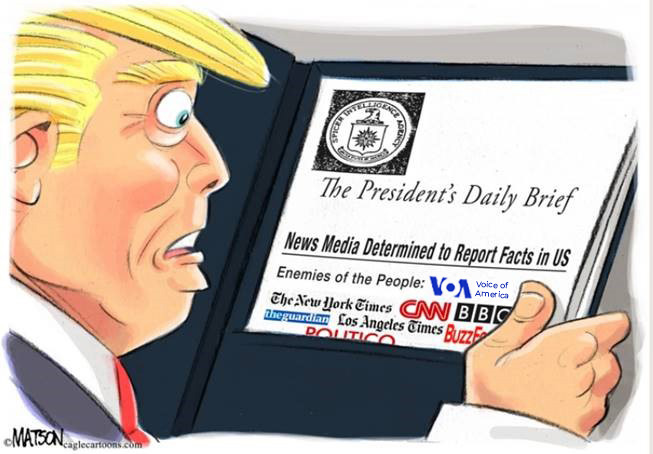| The Sound of Silence: How America lost its "Voice" |  |

By John Freivalds
The Roanoke Times, Roanoke VA
Published 8/16/2020
I traveled the world as a Peace Corps volunteer hitchhiking in places such as Iran and Colombia and later in the grain business seeking out new commodity markets and supplies from Kazakhstan to Kuwait. In those days I found America was loved and hated at the same time. Loved for the economic opportunity it offered for trade, education, political stability, and Disneyland, not to mention the almighty U.S. dollar.
In the days of my youth (the 1960s and 1970s) many countries were jealous of the U.S. and asked “how come the Americans are enjoying life while we have to live in an unstable if not hostile environment with a worthless currency?” Now President Donald Trump ungraciously calls these “s-hole countries.” Currently the U.S. joins countries including Brazil, Russia, Qatar, Uganda and Vietnam whose travelers are barred from the EU because of their inability to control COVID-19.
To make matters worse, the organization that used to prop up America’s image was the U.S. Information Agency (USIA) which was started at the height of the Cold War has come under fire by the current administration. Its mission was to counter Russian propaganda and the restriction of a free press and elections in many countries. It was started by President Dwight Eisenhower in 1953 and become the largest public relations organization in the world, spending more than $2 billion a year to highlight the U.S. while dumping on the Soviet Union, according to Wikipedia. It has gone through several iterations as it became the Broadcasting Board of Governors and today is the U.S. Agency for Global Media. But through all the changes The Voice of America had persisted and maintained its editorial independence.
The USIA boasted two stars: Edward R. Murrow and Willis Conover. Murrow headed the USIA from 1961-1962 and gave the agency a lot of influence; Murrow is credited in bringing broadcast journalism to the U.S. with his program See It Now. Murrow was the Walter Cronkite of his era. Murrow transmitted this wisdom thusly “we cannot defend freedom abroad by deserting it at home.” He brought a missionary zeal to the USIA and The Voice of America when my father was the Chief of the Latvian Service, one of 38 languages the “Voice” broadcast in.
Willis Conover broadcast to Russia and Eastern Europe for 41 years with his jazz show Music USA on The Voice of America. In an interview with Time magazine Conover explained why American jazz, not vitriolic propaganda, best explains America. “Jazz tells more about America than any American can realize. It bespeaks vitality, strength, social mobility, it’s free music with its own discipline but not an imposed inhibiting discipline.”
It did not help when Trump appointed Michael Peck chairman of the U.S. Agency for Global Media — the new name for the old USIA. Although Michel Peck promised that a “firewall” would be placed to protect The Voice of America, his actions speak otherwise. After the two top people of the “Voice” left he proceeded to fire all the top level managers. NPR reported that they were replaced by Trump administration political appointees. Then Peck was sued by past members of advisory boards who contend Peck “has broken federal guidelines of the broadcasters journalistic independence.”
Although the Voice of America, obscure at home, can only be heard abroad and reaches 236 million people with a paltry budget of $220 million (one B-1 bomber cost US $450 million). To return to its former importance and regain its voice in the world, the “Voice” needs to follow Murrow’s famous dictum “to be persuasive we must be believable, to be believable we must be credible, and to be credible we must be truthful.”
Here is what the people are saying!
Carol Gray
-
Really enjoyed reading your article just now. Thanks!!!!!
